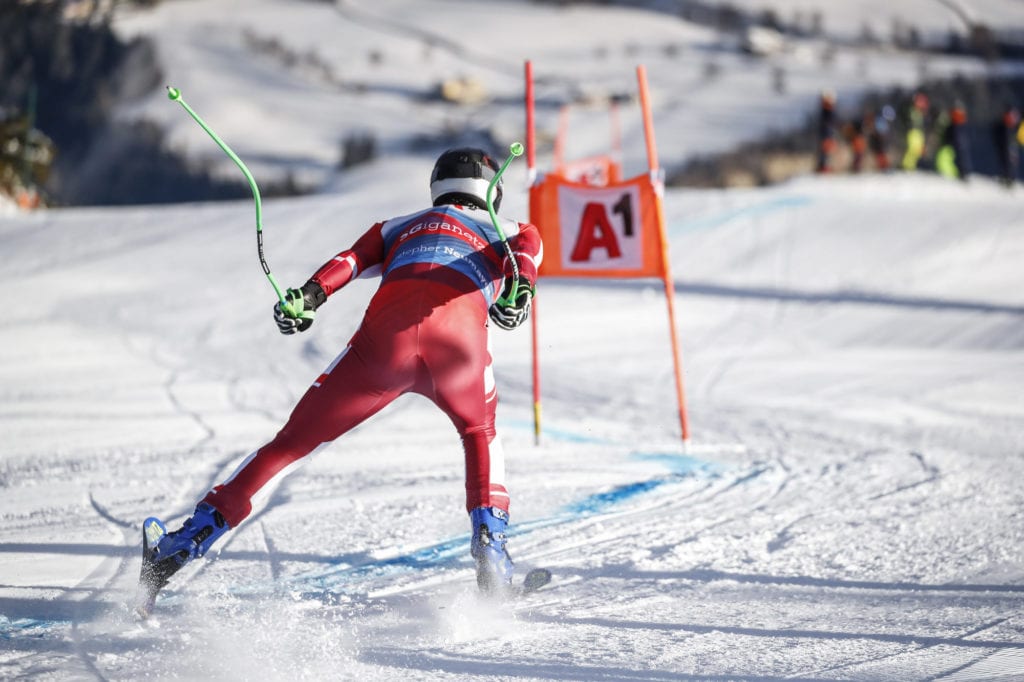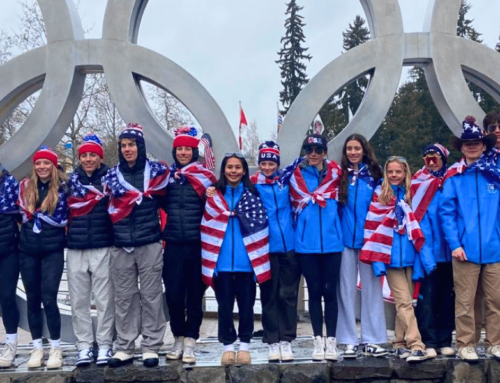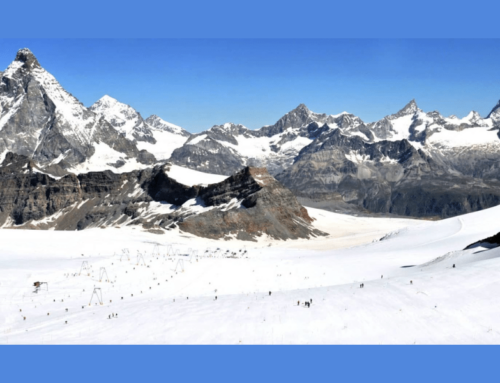Amid lockdowns, European travel and training have become more challenging
How do World Cup teams get on with their lives when most of Europe is now under lockdown? It has meant a lot of gas station meals, extra scrambling to find lodging and training sessions without chairlifts.
“It’s challenging, for sure,” said U.S. Ski Team Women’s Head Coach Paul Kristofic, from Schladming, Austria, this week, where the U.S. women’s team was staying before heading to the next set of World Cup races in France. “The ski areas in Austria are all closed to the public until Christmas. All the hotels and restaurants are closed until Jan. 7. It’s been challenging to find places A) with snow, and B) that are ready to bring in teams to train. It’s another matter of finding apartments and hotels that will have us. We can’t eat anywhere other than gas stations. Luckily grocery stores are open.”

The U.S. along with the Austrian team and several other small nations and clubs have been training the last few days in Reiteralm, near Schladming, where at least there’s a chairlift running.
“Some places don’t have lifts operating. They’re using snowmobiles for uphill capacities,” Kristofic said. “We’ve had great training here in Reiteralm. They’re used to having teams and there’s a willingness to run lifts. These places have to figure out if there’s a measure of cost efficiency. Everyone is going where there’s snow, wherever the place is willing to host you. The few places that are open to professional athletes have a lot of pressure on them.”
Pressure from within
Austrian Ski Association President Peter Schröcksnadel along with Austrian Ski School Association President Richard Walter recently wrote a joint letter pleading to the Austrian government to open the country’s ski areas to winter tourism.

In addition to accusing neighboring countries of “an international anti-winter sports campaign,” the letter assures the government that winter sports in Austria (which is considered by many to be the epicenter of Europe’s Covid-19 transmissions, as hundreds of cases across six countries were traced back to the Austrian resort Ischgl last season) “cannot be equated with party tourism and unbridled après-ski.”
“It is clear to all of us that winter sports have to make an important contribution to containing the pandemic. We also have the greatest interest that skiing in winter 2020-21 does not give rise to further Covid-19 infections,” the letter states. “For weeks, the companies have been preparing to guarantee winter sports enthusiasts in Austria the best possible security. There are strict hygiene concepts, space restrictions, guidance systems, cameras for distance control, ventilation systems, trained staff and test capacities.”
National teams have been taking every precaution to avoid the virus since the season launched this fall. Since most European ski areas are not open and many borders are closed to travelers between European Union countries, U.S. athletes and coaches have to make sure they stay on top of changing protocols and double check they have all of the appropriate paperwork on hand. For Europa Cup teams such as Team America, securing such paperwork in the first place was a time-consuming and confusing ordeal.
“It was months of trying to figure it out; sending letters to embassies, trying to get someone with a connection in the embassies, figuring out what the rules were for professional athletes …” said Team America Coach Peter Lange, who arrived in Europe this week with athletic trainer Chris Antinori and Colorado-based racer Alex Leever.
“A lot broke through when they invited Alex to the Europa Cup. When you get entered, you get the letter from the FIS. When the U.S. Ski Team says you can go over, you get their letter, then the Olympic Committee letter. You can get into Europe, but then you have to make sure you’re armed to bear when you get on with traveling,” Lange said.
In the current circumstances, professional athletes and their entourages are among the rare few able to travel between European countries at all, much less ski in any capacity.
“Switzerland opened ski resorts to the public, but everywhere else is just for professional athletes,” Antinori said. “I’ve read that France and Germany are pushing to have a uniform opening of their resorts in January, but obviously there is pushback. As Americans, unless you have legitimate business in one of these EU countries, they won’t let you in.”
The protocol
Kristofic said the U.S. Team has encountered police checkpoints where they have had to present paperwork when crossing borders. When flying anywhere or competing at a World Cup venue, everyone must present proof of a recent negative test result. U.S. athletes are testing for Covid twice a week and are being extra vigilant about avoiding prolonged close contact, especially after situations like that which befell the Swedish Team, when a staff member tested positive and several days later, slalom specialist Anna Swenn Larsson, who, due to close contact, had to miss the November races in Levi, also tested positive.
“All of those protocols are in place for a reason,” Kristofic said. “You’re at the mercy of the local health authorities in whatever country you’re in. It’s required a lot of flexibility, to be honest. You always have to deal with weather and limited choices where you have to go, but that is compounded by the fact that the rules are constantly evolving. We’ve found good quality training by exploring all of the options. We have to make sure we’re testing on all of the right days, planning with medical staff and staying up to speed with what defines close contact. It’s definitely a lot more work on everybody to check all of those boxes.”





















